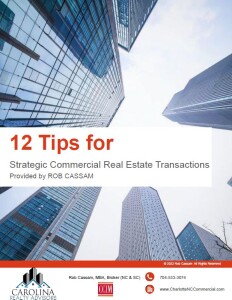This month’s newsletter has just been released! Check out the latest tips for tenants and users of commercial real estate space.
In this issue
- Negotiating The Termination Of A Lease
- Your Investment Portfolio Check-Up
- Alternative Rental Suggestions
- Office Building Comparisons
One or both of the parties to a lease of commercial or office space may want to sever the relationship prior to the end of the lease term. A tenant may want to terminate the tenancy, for example, because his business has grown since he first moved in and he requires larger quarters. A landlord may want to terminate the tenancy because there is a better prospective tenant available….(more)
When you make your investment in real estate, it is implied that you want to make money. The cash can come from direct income from the property or from capital gains from a sale after an increase in value. Either way, the investment must be managed, considered, and watched at all times. If the owner and manager are taking care of business, there may be ways to increase the income, and the value. There is always the possibility to make a sale for the right price and terms. Keeping aware of the market might bring an opportunity to make a tax-deferred exchange into a property with more benefits for the owner. Real estate investors often own various kinds of properties. They may have a mix of commercial, residential income, land and groups of houses. These owners have an extensive portfolio of investment real estate. Owners of portfolios of stocks and bonds meet with or call their broker often. Like seeing a doctor or dentist at regular intervals, it makes sense for real estate investors also to meet with their real estate investment representative or counselor at least a couple of times a year. Exchanging ideas with the professional who has the daily pulse of the real estate market can be profitable. At each meeting, the investor can plan on finding out the current market conditions that will have an effect on equities that are now owned or that could be acquired….(more)
When there are vacancies in commercial buildings, tenants may feel that they are in a good position to seek concessions from landlords on new leases or in exchange for extending or renewing existing leases. Landlords are apt to make deals for two reasons: (1.) The landlord may be facing high vacancy rates, and (2.) The landlord also recognizes that tenants may also be suffering from declining business and are less able to pay the high rentals of a few years ago. The landlord will be looking for a formula or concession that will give the tenant an economic break, but at the same time allowing the owner to show a scheduled (on paper) rent roll that is sufficient to satisfy a banker who is providing financing for the property…..(more)
Newer office buildings may fill up at the expense of older office buildings. Since new buildings cost more to build than the older ones, rents may be higher. The actual dollars-per-square-foot costs must be compared, along with other benefits that the tenant may receive, before a final decision is made by the tenant on staying or moving. In many areas, there are still a number of vacancies reported in office buildings. Most of this available space is in the newer properties. One of the most important jobs of a leasing agent for a building with this available space is to analyze other buildings to see if any tenant could be induced to move……(more)




